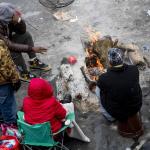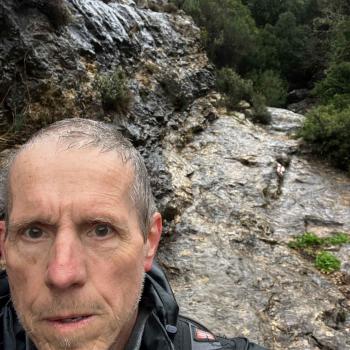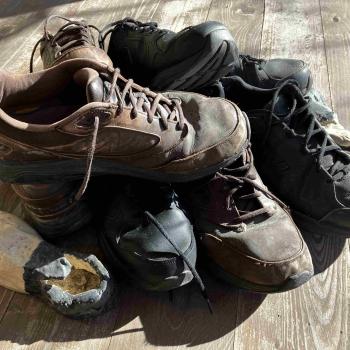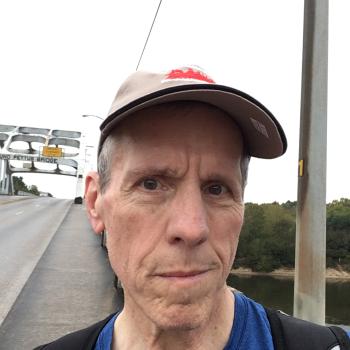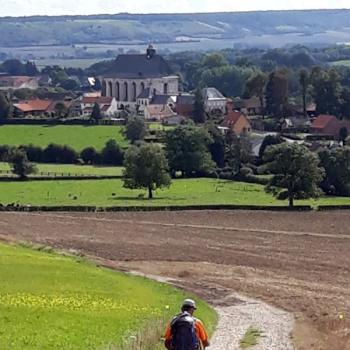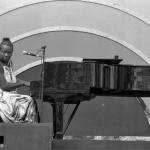I have “gone up” to the Holy Land.
In Judaism, the term Aliyah means go up, and applies to Jews immigrating to Israel. Not being a Jew, I am not, strictly speaking, making Aliyah. But the idea of going up, is literally and spiritually true for me. Literally, because Jerusalem sits on several hills which rise up from the Mediterranean Sea to the west and from the Dead Sea to the east. It is spiritually true because, being a B’nai Noach by choice, a heretical Christian by rearing, and an ever closer friend of Islam, to go up to Jerusalem is to confront your spiritual ideals in their most concrete and actual form. And what is pilgrimage but to test spiritual ideals with reality?
After three years of inner pilgrimage thanks to Corona/Covid, I was like those Chaucer described in his magnum opus.
“So priketh hem Natúre in hir corages,
Thanne longen folk to goon on pilgrimages,”
Only it is not April but January, but consciously chosen because it satisfied several criteria:
- It is cheaper then
- It is between holy days and seasons
- It is warmer than Michigan
More than once my friends and clergy colleagues asked, ‘why Israel?’
That may sound odd, but as a Unitarian Universalist makes complete sense. Very few in that community align themselves with the Abrahamic faiths. Mostly. they are non aligned, religious naturalists, with some Buddhist and Pagan outposts.
I said ‘they’ as if I am not one, and in a sociological sense I am an outlier. But even those on the borderlands belong, though we speak with an accent as it were.
Enough of why, though. The Holy Land – which has had many names – is the intersection of religions and cultures, peoples and empires, histories and horrors. That alone merits visiting. Thus I put down my money, and boarded a plane on January 22 for Tel Aviv.
Though it may not seem so, every pilgrimage begins when you leave the familiar, in this case when arriving at the airport.
 Often, at airports, I see planes waiting at their gates destined f0r Sydney or Singapore. Sometimes I see them rise grandly into the air and imagine that in a few hours they will set down around the world. At that moment, it all seems very romantic.
Often, at airports, I see planes waiting at their gates destined f0r Sydney or Singapore. Sometimes I see them rise grandly into the air and imagine that in a few hours they will set down around the world. At that moment, it all seems very romantic.
On board, overseas travel is more prosaic. We hustle into narrow seats, stowing self and goods for a long flight. Neck pillows, earbuds, eye masks, half swallowed bottles of Diet Coke, all get tucked into the tiny corners we are allotted. There is always an infant somewhere with a nervous mother, struggling to hold baby and self together. You can sense those going away and those going home. These people, whom we do not know and will not know, will sit closer to us than our intimate bedmates.
There is a moment of excitement when the plane really does lift off, and a passing chill as the reality of leaving home becomes undeniable. The next time I shall stand upon solid ground I will be 7000 miles away, in the Middle East, a foreigner.
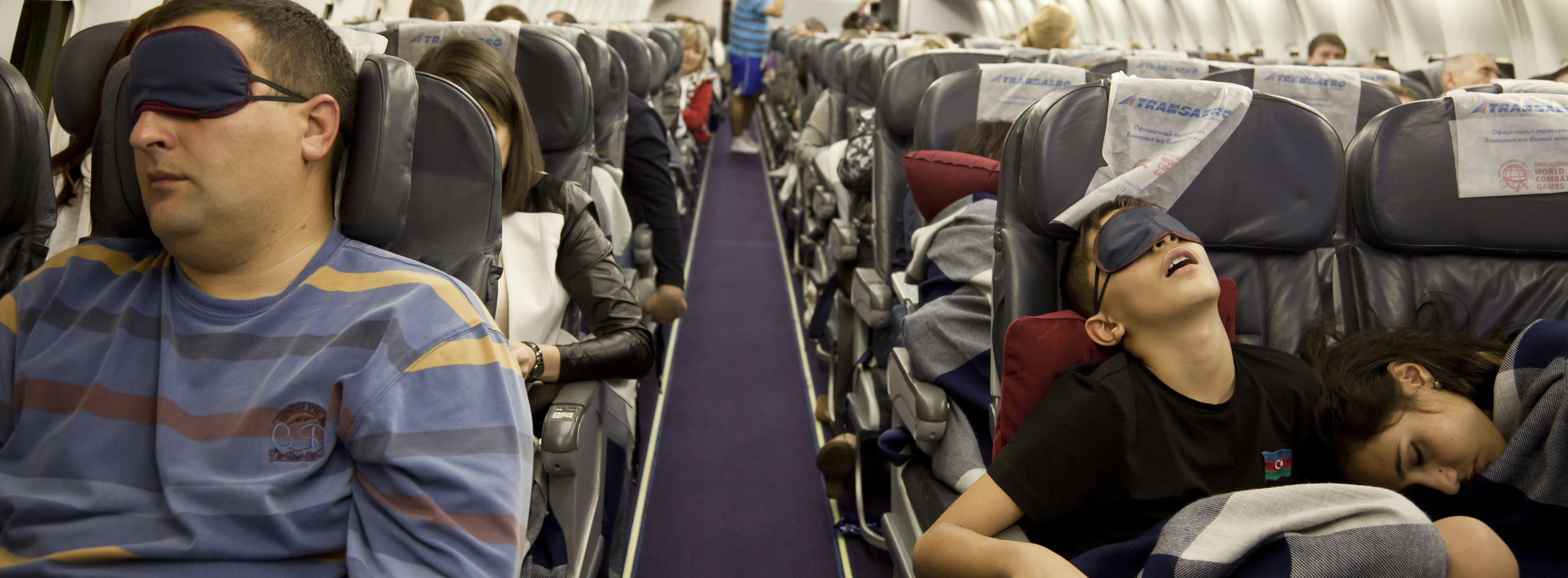 Some people, may they be cursed, can sleep on airplanes. My seatmate, a very young orthodox Jewish man on his first trip to Israel, the tzitzit of his tallit kattan hanging from his waist, pulls the thin airline provided blanket to his chin after supper and easily falls asleep leaning against the wall of the plane. I toss and turn, pinched by the limits of the seat and unable to turn on my side which is how I prefer to sleep. Having made 28 overseas flights before (this trip will make it an even 30) I know that sleep is unlikely. Only once or twice, thanks to a Business Class upgrade, have I gotten any actual sleep.
Some people, may they be cursed, can sleep on airplanes. My seatmate, a very young orthodox Jewish man on his first trip to Israel, the tzitzit of his tallit kattan hanging from his waist, pulls the thin airline provided blanket to his chin after supper and easily falls asleep leaning against the wall of the plane. I toss and turn, pinched by the limits of the seat and unable to turn on my side which is how I prefer to sleep. Having made 28 overseas flights before (this trip will make it an even 30) I know that sleep is unlikely. Only once or twice, thanks to a Business Class upgrade, have I gotten any actual sleep.
Miami to Tel Aviv is 13 hours. Not my longest flight, but not by much. I calculated that Asia always entails a total of thirty plus hours transit. No matter where I have gone before – Tokyo, Beijing, Delhi – it was about the same total time. While this is nothing compared to the trials of walking to Canterbury or to Santiago in medieval times, it is had on the body and mind.
This is good, in a sense, as
Pilgrimage is not vacation.
Relaxing is not the point. It is supposed to be a challenge, and so it was, as I lay awake for some hours, dozing for a few minutes before something ached enough to wake me again. What made it additionally surreal was that the plane – a Boeing Dreamliner – dims the windows electronically so that even after we reached daylight over Spain the windows made it look like twilight all the way to Tel Aviv. If part of the hero’s journey is to enter a world separate from daily life, to be transported from the ordinary, then this would do the trick quite well.
Groggy and stiff, I walked from the airplane into nearly empty wide corridors that seemed to last for miles. It was bright outside, being late afternoon, which was welcome. Since my last overseas flight nations have adopted automated passport control measures. I stood in front of a kiosk, holding my passport on a glass plate and looking at a camera. “Hal? Is that you?” I thought. A tiny slip of paper, my permission to be in Israel, spat out, telling me I had leave to stay for 90 days provided I do not work.
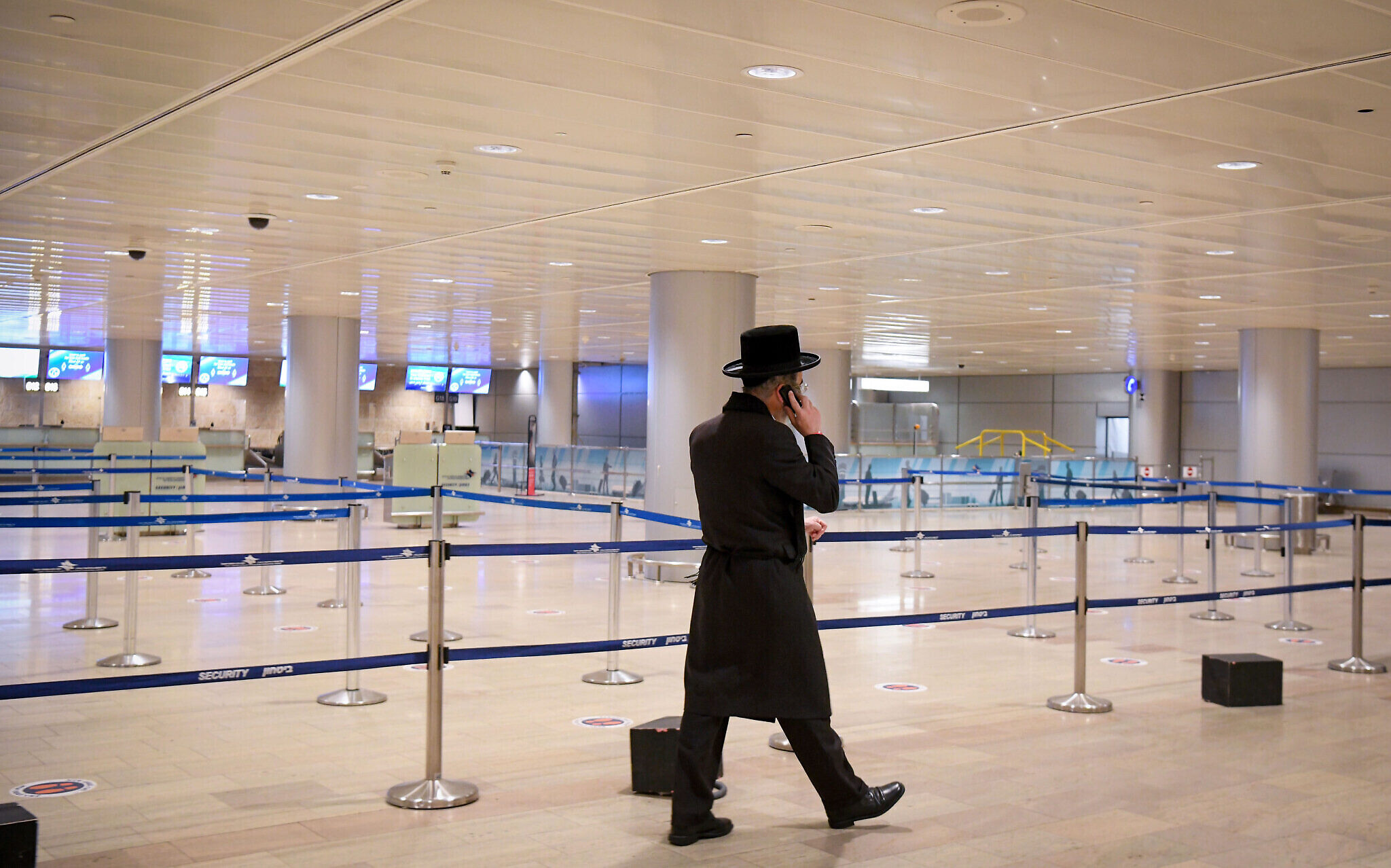 Around more corridors, down more ramps, and into the baggage room. I checked a bag. Silly me. It did not arrive. After everyone else had left I was among the one or two with nothing to claim. This was not the first time. The last time was going to India in January 2016, when I was without clothing for a week. Here is hoping this time does not take as long. But first to the missing baggage desk, which was not easy to find. Then someone with adequate but not perfect English. I got a slip of paper and instructions to email or call.
Around more corridors, down more ramps, and into the baggage room. I checked a bag. Silly me. It did not arrive. After everyone else had left I was among the one or two with nothing to claim. This was not the first time. The last time was going to India in January 2016, when I was without clothing for a week. Here is hoping this time does not take as long. But first to the missing baggage desk, which was not easy to find. Then someone with adequate but not perfect English. I got a slip of paper and instructions to email or call.
And with that I entered Israel officially, into a vast room with people waiting for relatives and friends, or holding those signs. I needed a Ravkav card, used for all trains and buses in Israel. There was a counter. The bored looking man, sensing my non Israeliness, gestured toward a machine alongside. I bought the card from the machine, then had to go to him to add money. I pay with a credit card. Now to find the train.
That was easier than feared, but as so often happens, the train waiting was the right one but I did not know it so it left and I had a half hour to learn some Hebrew by reading the billboards and signs. It is now after 5 pm and it is dark. The train arrives, and I follow the emailed instructions from my hotel, The Port Hotel, to take the train to the main station then a bus from the bus station.
 Getting of the train, and following the arrows, I left the station and found myself on the street. It is downtown Tel Aviv. It could have been Chicago. But no bus station in view. Bus stops, but not for the number I was told to take. I walk down the street, across the street, up the street. No station, no number. A taxi at the curb is available. “Port Hotel?” I show him the address. “Cash?” he asks. “How much” I say. “Thirty shekels.” I get in. Annoyed that the directions were inadequate, I remember that annoyances are part of the journey. Thirty shekels is less than $10. Worth it. He stops on Yirmiyahu street and points across the street. I am here. In my little room in Tel Aviv, I have survived the long passage from Grand Rapids – via Charlotte where my bag missed the flight, and Miami – and can now focus on finding supper.
Getting of the train, and following the arrows, I left the station and found myself on the street. It is downtown Tel Aviv. It could have been Chicago. But no bus station in view. Bus stops, but not for the number I was told to take. I walk down the street, across the street, up the street. No station, no number. A taxi at the curb is available. “Port Hotel?” I show him the address. “Cash?” he asks. “How much” I say. “Thirty shekels.” I get in. Annoyed that the directions were inadequate, I remember that annoyances are part of the journey. Thirty shekels is less than $10. Worth it. He stops on Yirmiyahu street and points across the street. I am here. In my little room in Tel Aviv, I have survived the long passage from Grand Rapids – via Charlotte where my bag missed the flight, and Miami – and can now focus on finding supper.
Pilgrim life is simple and strenuous. Could there be a better way to summarize spirituality?


